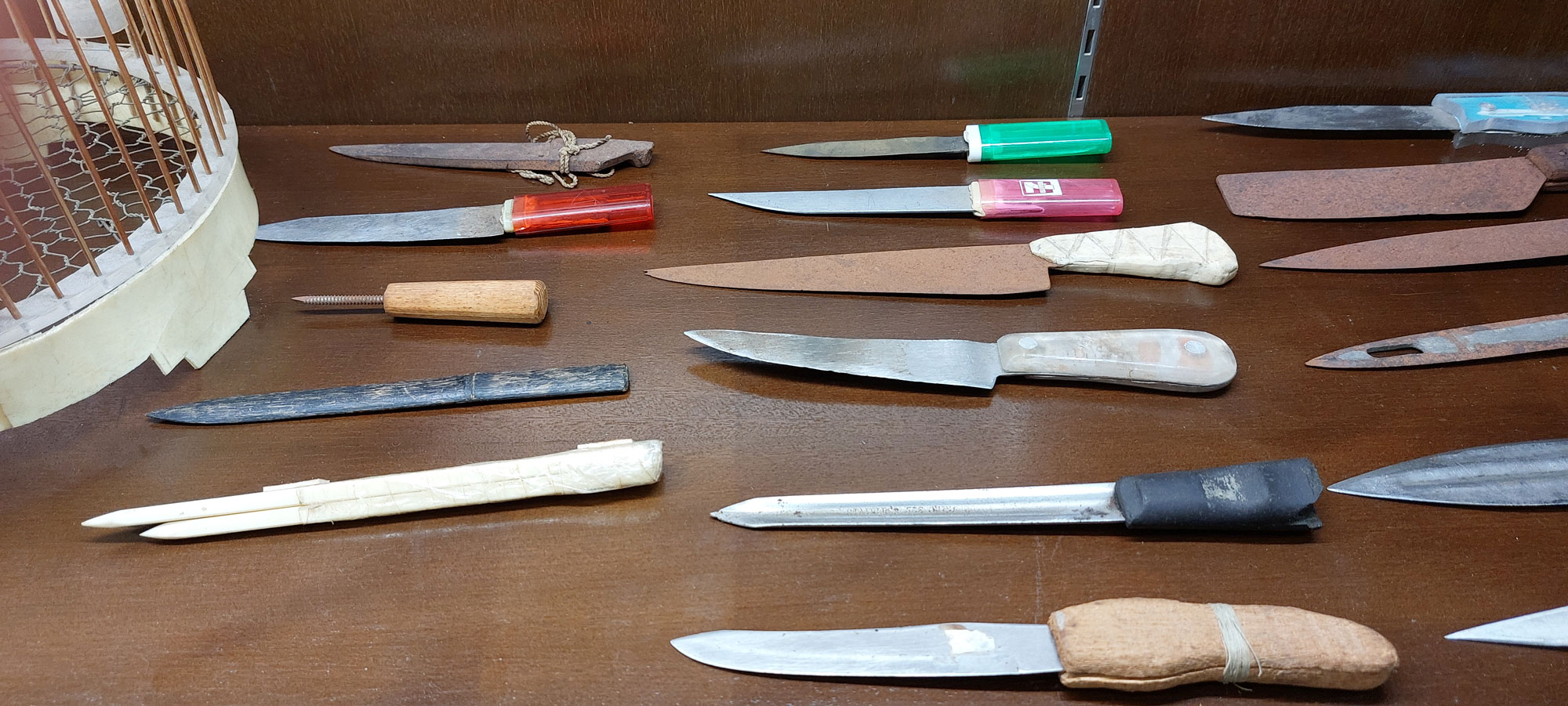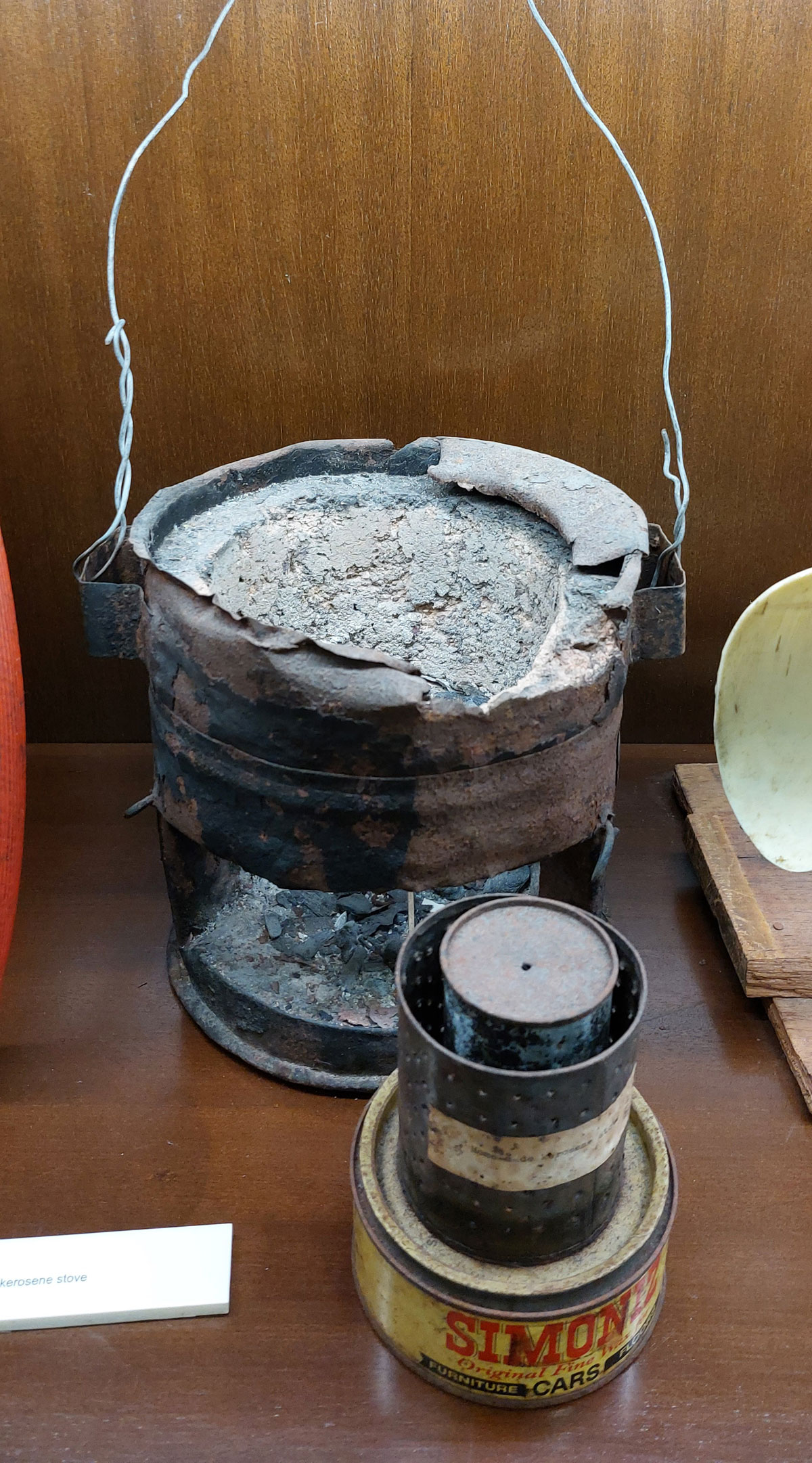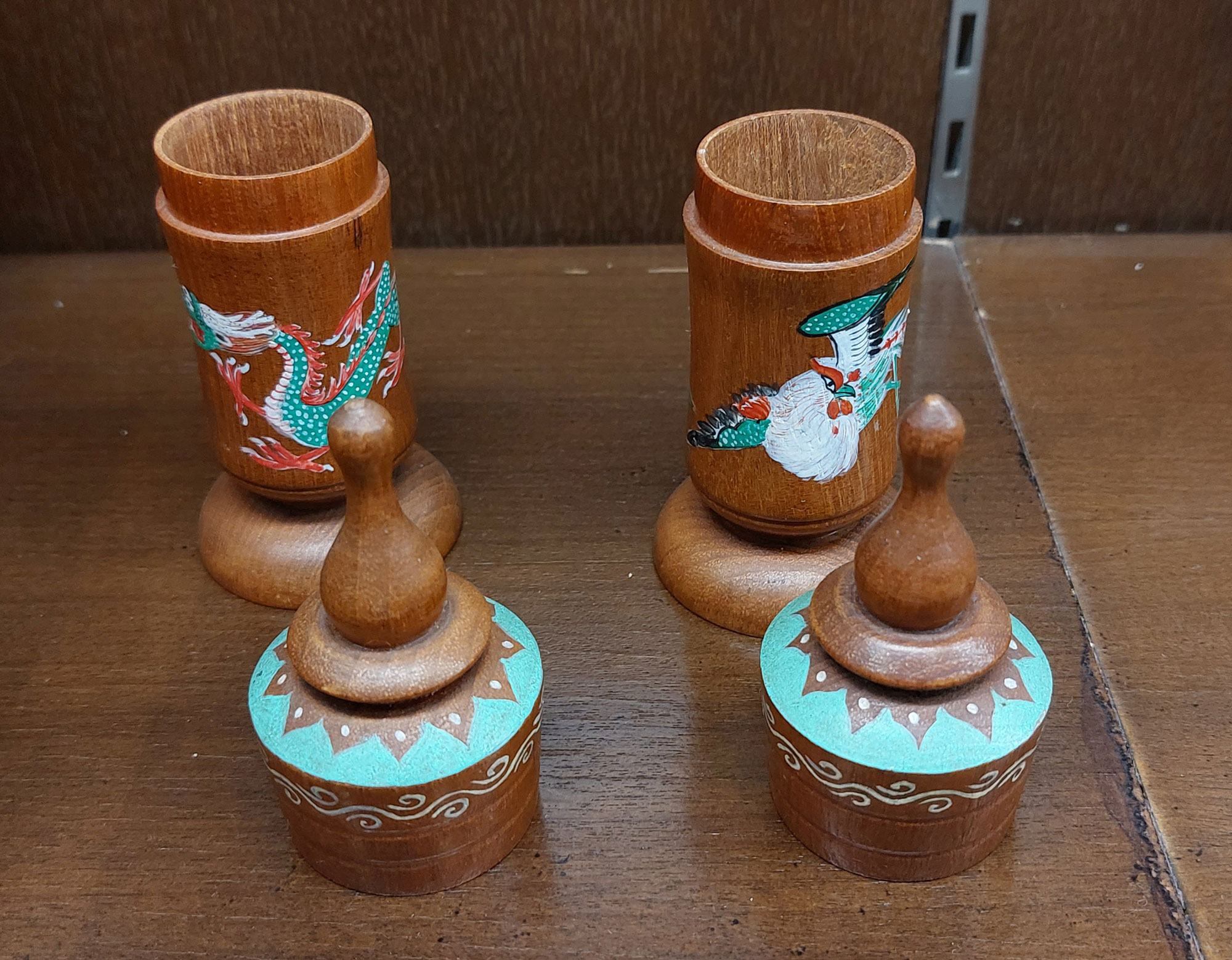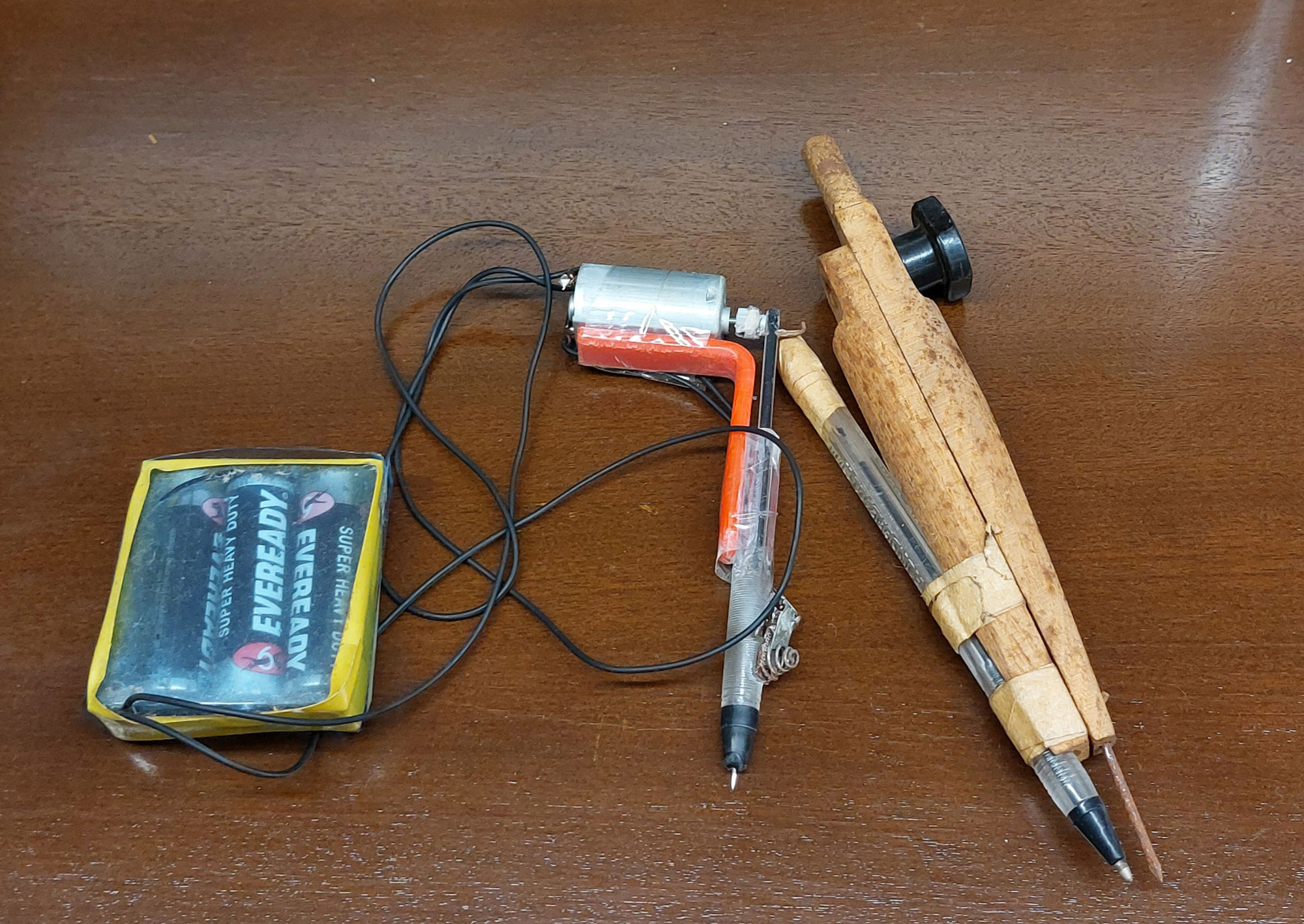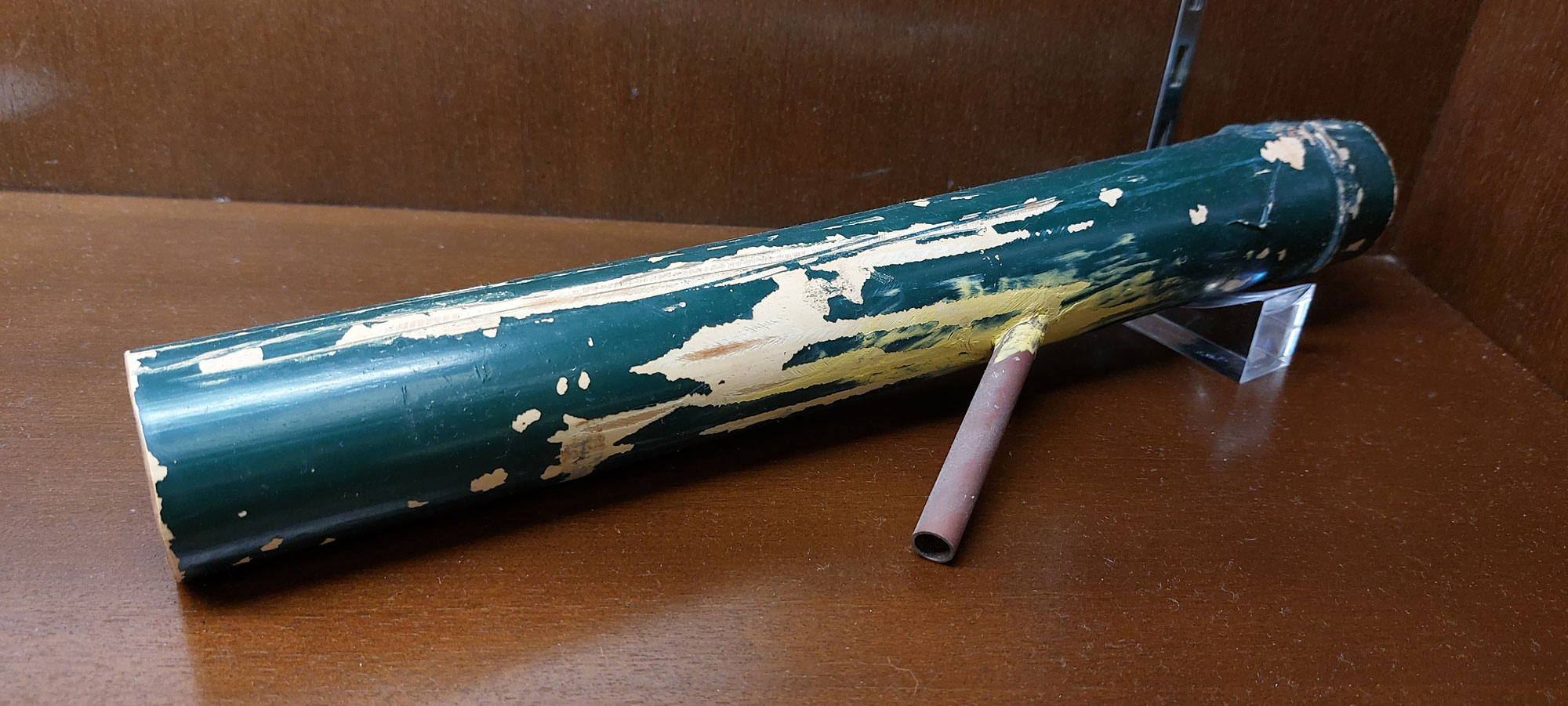


Homemade Weapons and Unauthorised Articles
In those days when Hong Kong was struggling to cope with the sudden influx of Vietnamese refugees and migrants, the
Correctional Services Department (CSD) was required to take resolute actions immediately upon receipt of directives.
During the two decades when Hong Kong had been providing humanitarian aid to these Vietnamese, the CSD had encountered
many crises and challenges. In February 1984, disturbances occurred in the closed camps at Chi Ma Wan and on Hei Ling
Chau, which mainly stemmed from the hostile relationship between North and South Vietnamese refugees. To address such
problem, the two groups of Vietnamese refugees were separated and housed in different closed camps under a segregation
policy. In July 1988, the CSD pacified some angry Vietnamese migrants who provoked protests and disturbances against the
screening policy in Hei Ling Chau Detention Centre. In 1994, some Vietnamese migrants in Whitehead Detention Centre
staged a hunger strike in opposition to the mandatory repatriation policy. They even locked themselves up in the camp,
set fire and carried out wanton destruction. On 10 May 1996, nearly 1 000 Vietnamese migrants set fire and protested in
the same detention centre, burning down many dormitory blocks and vehicles. On that day, over ten correctional officers
were held hostage by the Vietnamese migrants, and over 200 migrants escaped from the camp during the chaos.
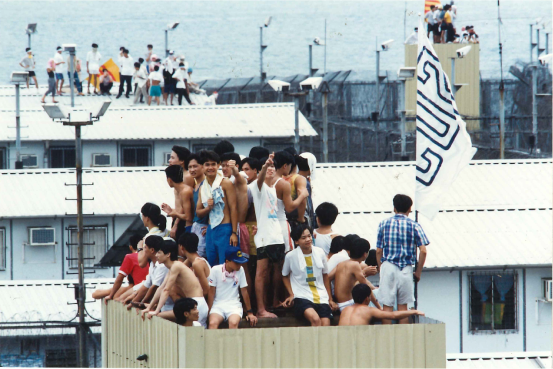
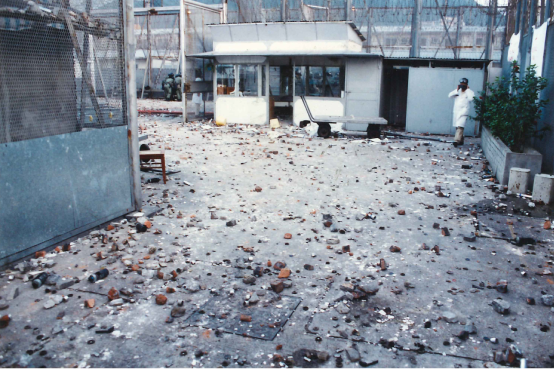
The Vietnamese migrants made various tools and weapons by using different materials found in camps. With the continuing
influx of Vietnamese migrants, the camps became more and more crowded and hence numerous conflicts arose. Some migrants
sharpened stolen pieces of equipment or materials stripped from their barracks into deadly weapons to attack others,
including CSD officers during disturbances. Apart from Vietnamese migrants, prisoners also made unauthorised articles by
using various materials, such as tools for gambling, weapons, receptacles for hiding contrabands, etc.
Despite all these difficulties, the well-trained CSD officers were able to accomplish their mission, with great success
in settling and managing the continuous influx of Vietnamese migrants, which was conducive to maintaining social
stability. During the Vietnamese refugee era, they fully displayed their steadfast commitment, unremitting perseverance
and professionalism, making remarkable contributions to the history of humanitarian relief of Hong Kong.

